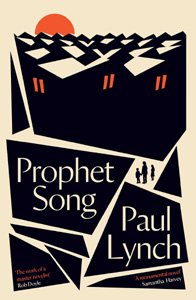One of my favourite kinds of literature is novels about novelists. So it was inevitable I'd be drawn into Tan Twan Eng's tale about Willie Somerset Maugham's 1921 travels to Penang and the inspiration he found there for his short story 'The Letter'. He and his secretary/lover Gerald stay with Willie's old friend Robert and Robert's wife Lesley. The narrative revolves around the uneasy companionship formed between Willie and Lesley. It's very compelling how Eng portrays this relationship because they aren't exactly friends but they're not enemies either. Each makes assumptions about the other, but both are at a crisis point and possess secrets. As more about their lives is revealed they form a special connection and understanding about one another. This is a novel primarily about the dynamics of romantic relationships. It's about how to balance levels of truth and intimacy in a marriage. It also vividly brings to life an area with a colonial past and the stirrings of political revolution. And it's about the process of creating fiction: which stories are memorialised, which are forgotten and how the past is manipulated through storytelling. It's a tale whose power became more evident the more I read and it's left me with a lot to think about in regards to all these issues.
I found this book immediately compelling because of the beauty of the writing. Eng's descriptions of the landscapes, the food and the society is so immersive. I felt like I could visualise the environment of Malaysia and feel the sensations being described. There's a transcendentally gorgeous scene where two characters swim in a sea that's filled with bioluminescent life. Not only did this brilliantly capture the feeling of this experience, but it also represented a poignant moment of liberation for the characters. The central metaphor concerns the titular House of Doors which is a structure that houses and displays beautiful old doors salvaged from buildings which have been destroyed. It develops a richer meaning over the course of the story suggesting gateways into the past which lead nowhere, stories whose truth can't be known and doors that open to new possibilities. It prompted me to wonder what is preserved and what is lost. This location is also an important focal point for the plot of the novel.
Lesley conveys to Willie the story of her close friend Ethel who was put on trial for murder after shooting a man. This formed the inspiration for Willie's fictional story, but we learn there is an even more complex and scandalous tale behind the one which Willie writes. Additionally, Lesley is more complex than she initially appears as details about her personal history, marriage and desires are revealed. Though certain sections concern the personal, professional and financial struggles Willie is going through, the narrative really belongs to Lesley and she takes control of her own story through this novel. At one point she realises: “we all had the power to change our pasts, our beginnings – or our perception of them, at least – but none of us could determine how our stories would end.” This epiphany allows her to take some agency in her life rather than be a victim of her circumstances. It also allows the reader to romantically imagine what might occur with her character after the end of the novel. This is such a superbly written and psychologically-rich novel I'm now eager to read Eng's previous two novels.












